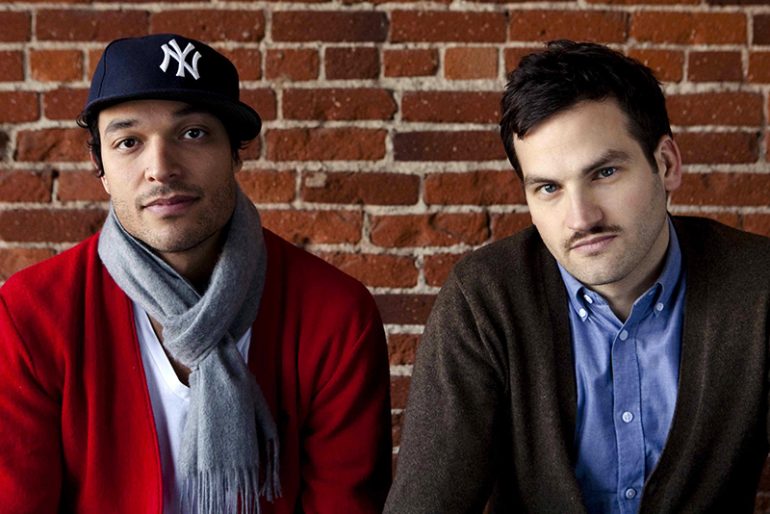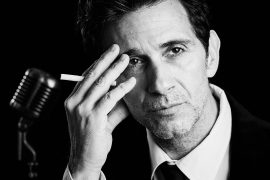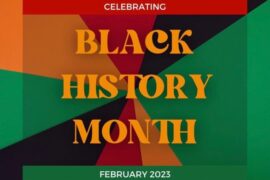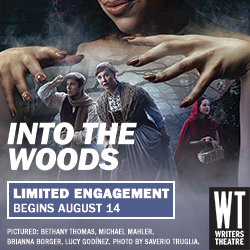LA 92 is an upcoming National Geographic documentary that looks a riveting look back at the controversial Rodney King trial and subsequent protests, violence and looting of Los Angeles through stunning and rarely seen archival footage.
Directed by Oscar winners Dan Lindsay and TJ Martin (“Undefeated”), the film looks at the events of 1992 from a multitude of vantage points while bringing a fresh perspective to a pivotal moment that reverberates to this day. While using no narration or talking head interviews, the filmmakers decided to take a bold approach: to reconstruct the tumultuous events that unfolded by exclusively by using archival footage and photographs and culling thousands of hours of visceral and rarely seen broadcast news footage, radio reports, police files and personal home videos – some of which has never been broadcast.
N’Digo recently spoke with Lindsay and Martin to get more insight on the film and their inspiration in putting it together.
What made you want to tackle such a sensitive subject matter?
TJ – Dan and I have a tendency to tackle race and class pretty consistently so I don’t know how to quite answer that. You can say that we like being in the center of heated debates. laughs Honestly, I think we saw, as many did, with the 25 year anniversary of the civil unrest in LA upon us, I think we saw an opportunity to explore race, class, and justice. But in our case, we saw an opportunity to explore it in less than a journalistic lens and more through an experiential lens. So I think the hope was to explore these struggles but with a new and unique approach with the intention of hopefully inspiring a unique dialogue. Considering one of the big things we tuned in on right when we were looking at directing this film was the cyclical nature of these events so our thought was how could we explore it through a new lens and potentially provide a new perspective.
Is there a particular feeling or emotion you want to evoke in people when they watch?
Dan – We talked early on in the film about wanting to reach a conclusion that was sobering for the audience. We didn’t want to try to wrap it up with a neat bow and give inspirational statements about, you know “the 5 steps we need to take to change” or whatever. We saw this time and place and the issues it’s exploring as being so complicated that we thought it would be irresponsible to try and wrap it up that way. I think we were compelled to the do the film because it gave us an opportunity to, through a singular event, raise a mirror up to America. And hopefully that sobering effect then at the end inspires people to kinda be a bit more introspective and leads to more empathy when talking about this subject matter or engaging in some current events, like how can we look to our past to hopefully learn something about our present?
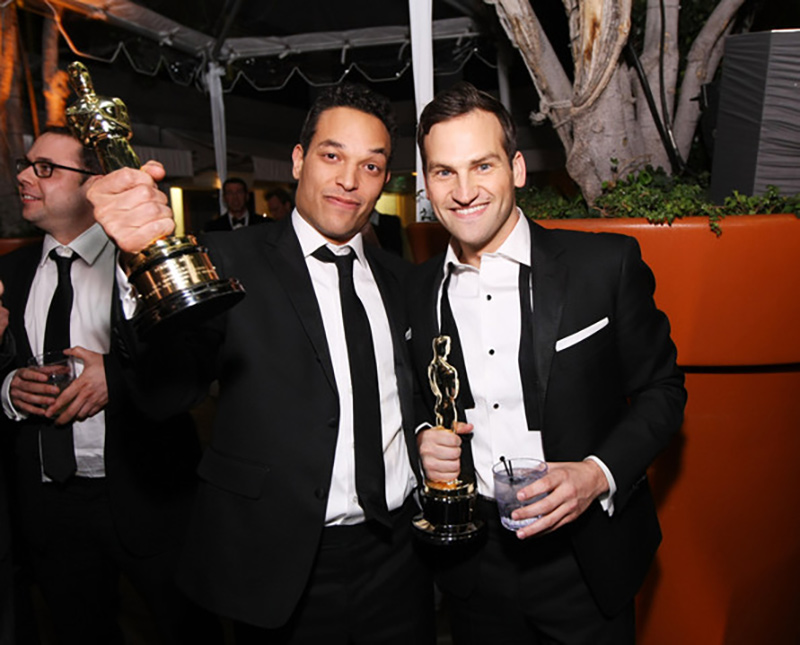
Granted you said you weren’t attempting to make it as though you had an answer to the problem, but did you all have any takeaway or new insights?
Dan – The biggest thing I pulled away was that we need to find a way to talk about these matters constructively. Again, I think that becomes uncomfortable for people and they begin to retreat into these places. We had a bit of a rhetorical question we came across as we were making the film and it was ‘What are we capable of as human beings? That extends to the amazing acts of humanity we can have all the way to the awful acts of violence that we see but I do think we are capable of it doing so, I just don’t think we know how to have the conversation.
Leading up to the riots in 92 a lot of people were initially shocked to learn things like this went on but now we are inundated with these images thanks to footage from cell phones and body cams and social media. Do you think people are becoming desensitized to horrific images and witnessing people being mistreated?
Dan – I’m unsure if we’re desensitized or not. My read is that it’s overwhelming. It’s just overwhelming for people, especially emotionally. I think it makes us uncomfortable and wanna retreat back to something that feels safe. And a lot of times we retreat back to fear and ignorance. Take for instance the video of Philando Castile. That was one of the most disturbing things I’ve ever seen. And the fact that I also knew you could predict how people would respond to it according to their political leanings. And that’s such a sad statement to me of where our country is today. And I think part of that is because it’s overwhelming. It’s hard to recognize the inherent contradictions in our country and figure out how to reconcile that. I think that’s really hard for people.
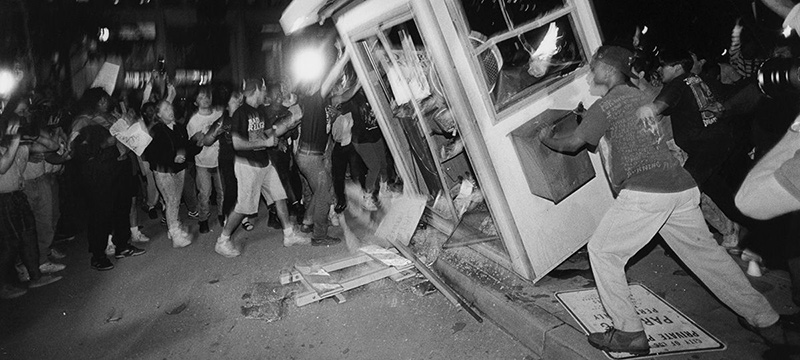
TJ– Yes we have. We have become desensitized and it takes a lot unfortunately to shock people into seeing atrocities because we’re getting so acclimated to witnessing injustices on so many levels firsthand through video. I think there’s one school of thought that says the democratization of the medium of video itself has helped further the conversation. Then I think there’s another school of thought that says, as you’re asking, we’ve become so desensitized to it that it actually inhibits the conversation. I personally think that the more material that we can get out there that helps add hard evidence to the realities that people essentially face everyday, the better
Because these aren’t new occurrences?
TJ – Right! These are not anomalies, I think in 1992 it kinda caught the attention of dominant culture thinking this was an anomaly. As a woman representing the ACLU says in the film, “These things happen everyday. The difference this time is we have the proof!” That sentiment echoed in the film a couple times and I feel like that same echo is happening now. There’s a sentiment that now that we have the proof, but still the proof doesn’t seem to be changing, not just policies and laws, probably more importantly it’s not really changing culture.in terms of how people are perceiving disenfranchised communities and the realities that difference socio-economic groups face in real life.
25 years later, do you think race relations have gotten better, worse, or bad in a different kind of way?
Dan – It really morphs in weird ways. From my vantage point as an almost 40 year old white guy who lives in LA and is surrounded by lots of like minded people, I feel like although the progress doesn’t happen fast enough, I do feel like the fact the conversations are happening as much as they are can only be considered a good thing, I think the desire is that things seem so clear you want people to just f–king understand and the fact that they can’t understand is extremely frustrating.
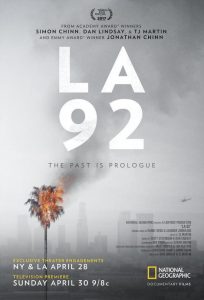
LA 92 makes its television broadcast debut on the National Geographic channel on Sunday, April 30 at 9/8c. For more information please visit, http://channel.nationalgeographic.com/la-92/


